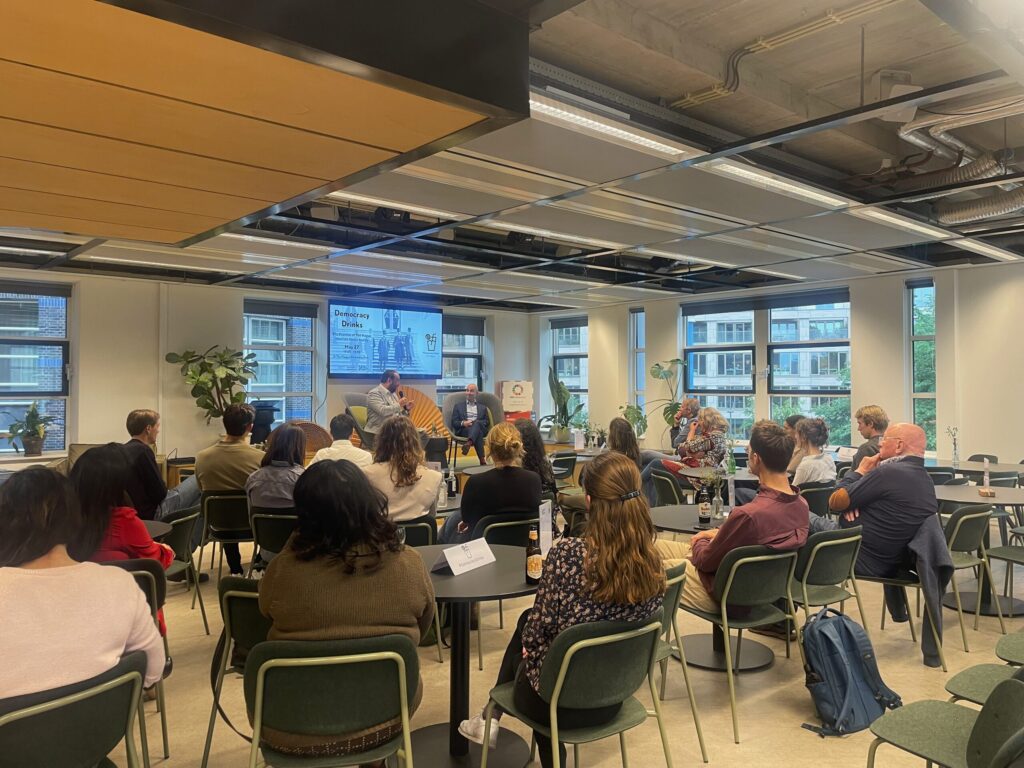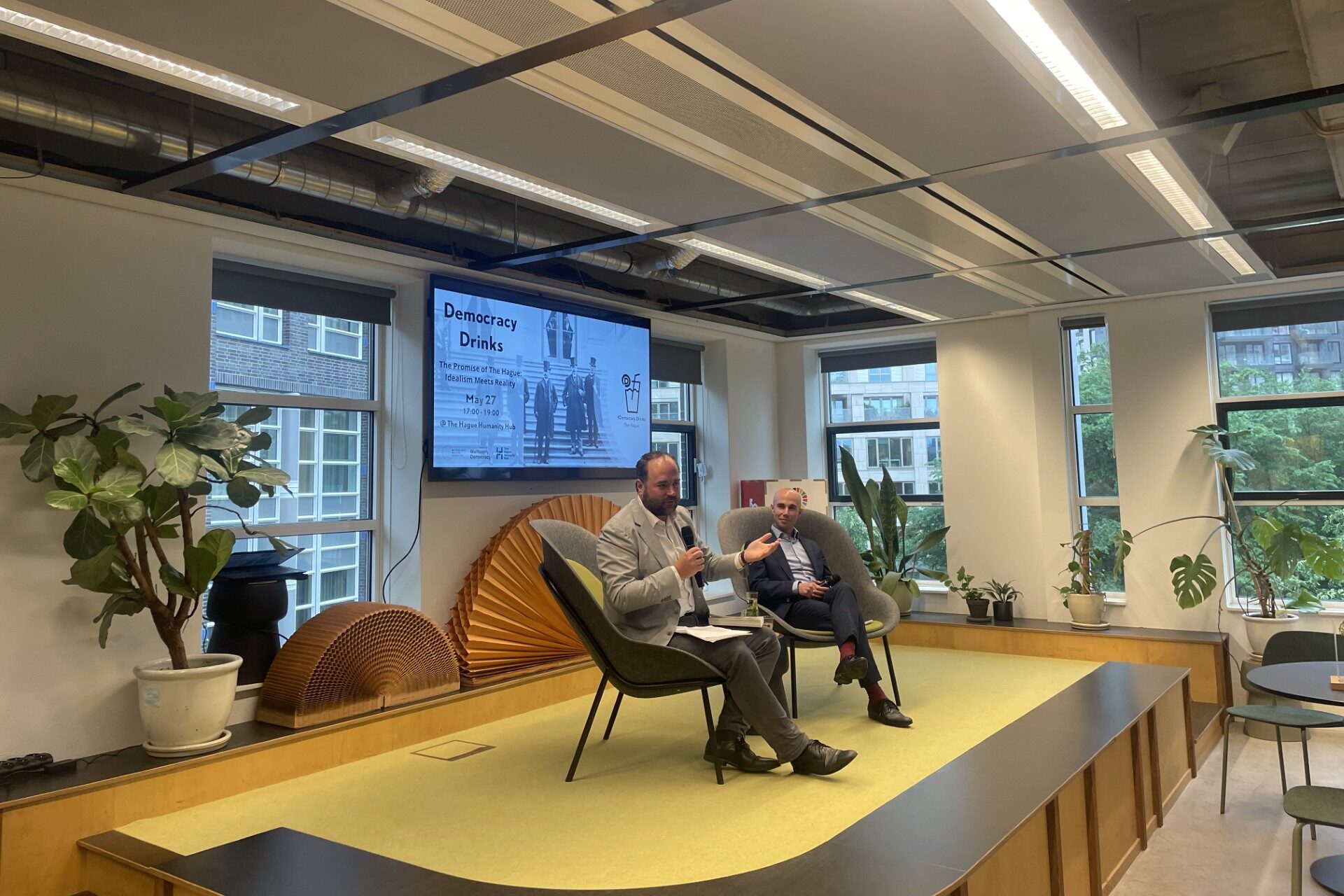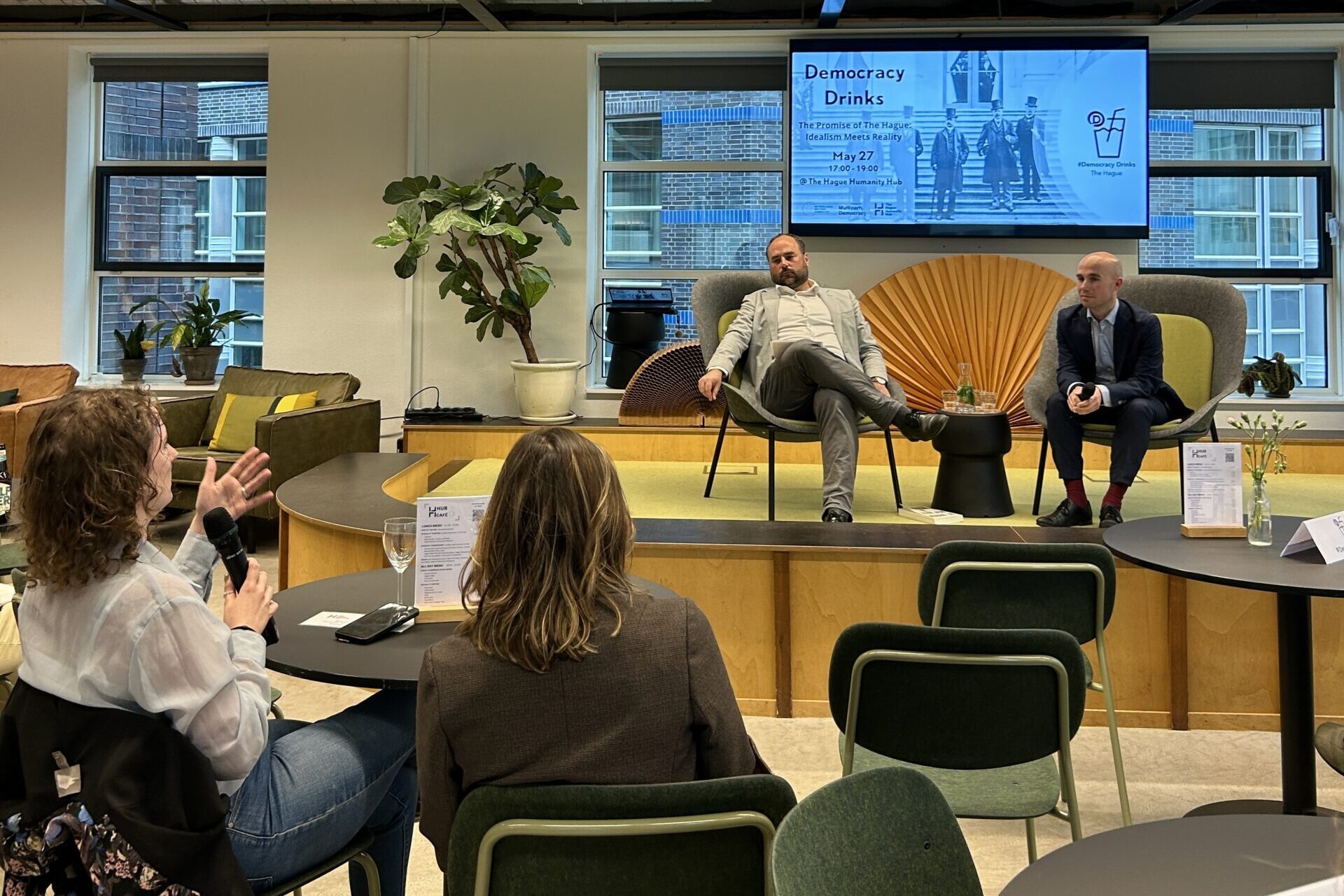#DemocracyDrinks: The Promise of The Hague

For the May 2025 edition of Democracy Drinks, participants gathered at The Hague Humanity Hub for a compelling conversation on the role of democratic ideals on the world stage. The event featured Benjamin Duerr, international lawyer, diplomat, and author of De Droom van Den Haag, (“The Promise of The Hague”) and Tijmen Rooseboom, the Executive Director of NIMD.
Duerr’s book discusses the unprecedented Peace Conferences in The Hague of 1899 and 1907. These conferences, largely shaped by visionary figures like Bertha von Suttner and Dutch diplomat Willem Hendrik de Beaufort, called for disarmament, the establishment of rules for war, and the creation of international courts.
Perceived Failure or Foundational Legacy?
The outbreak of two world wars seemingly discredited the ambition of those early peace talks, painting them as utopian and ineffective. As Duerr pointed out, this perceived failure dismisses the longer-term impact; that many of the principles born in The Hague, such as binding rules of war, the peaceful settlement of disputes, the idea of global legal institutions, still form the bedrock of today’s international system. Despite the crises that have followed, the legacy of those conferences continues to shape our collective responses to conflict and injustice.
Today’s Challenges
The foundations of long-term peace and stability are dependent on robust democratic institutions and meaningful international cooperation. Unfortunately, what we see today is that public trust in democratic institutions is eroding and international cooperation is under pressure. There is a renewed focus on national security and defence spending today, as we saw at the 2025 NATO Summit in The Hague.

What We Need
Rooseboom pointed out that it does not make sense to defend democracy through military investment alone. It should go hand in hand with democracy support and development cooperation. Otherwise states risk deepening the very insecurities they aim to prevent. The participants couldn’t agree more. In the discussions they emphasized that security cannot, and should not, be defined solely in terms of military strength.
Duerr also agreed and emphasised that the world still need leaders who are accountable, not only to their own people but to global norms and agreements. Rooseboom added that democracy is not just about elections; it is about building trust, enabling accountability, and empowering people to participate in decision-making.
The legacy of The Hague Peace Conferences reminds us that international cooperation is not just a lofty idea but is and remains essential for worldwide stability. And democracy plays an important preventative role. As Duerr and Rooseboom both underlined: a democratic society is more resilient, not only internally, but also as a member of the international community.

